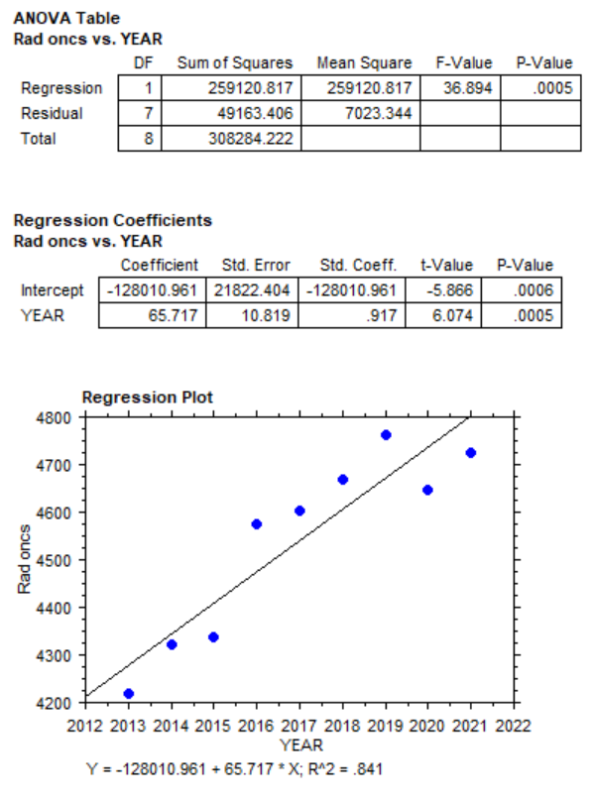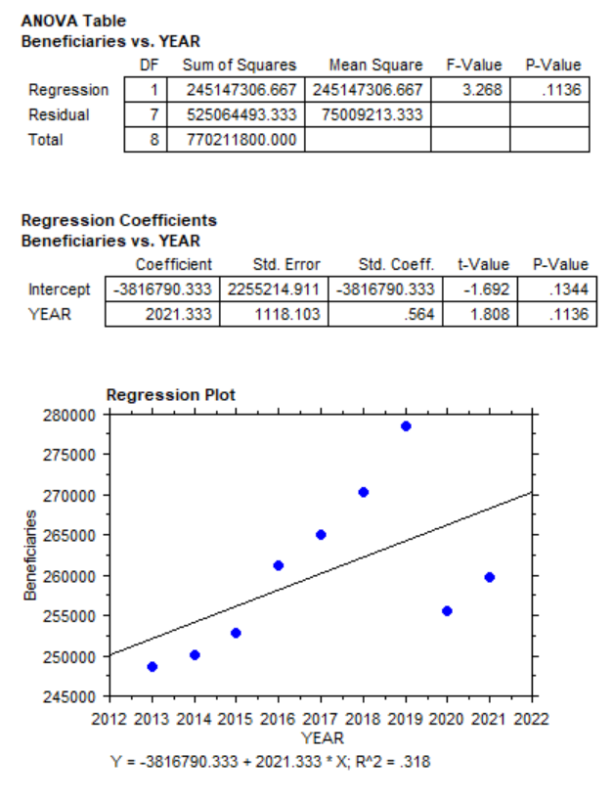Todd Scarbrough, Radiation Oncologist at Northeast Alabama Regional Medical Center, shared on X/Twitter:
“The years of 2020 and 2021 are the *possible* start of some proof that the supply of radiation oncology MDs in the United States is outstripping the patient load available to treat.

Let’s just look at the Medicare Part B database from 2013-2021. 2021 is the most recent year available (the database always lags by 2-3 years). All data here.
CPT code 77263 describes a complex treatment plan (i.e. 3D, IMRT, complex isodose, proton, brachy, etc.). Over 95% of all radiation oncology plans are complex tx plans. We will look at the number of Medicare beneficiaries who receive a 72263 per year. And look at number of radiation oncologists.
The Part B rolls show that:
– In 2013, 4220 MDs performed a 77263.
– In 2021, 4726 MDs performed a 77263.
(assume that these are all radiation oncologists… a reasonable assumption)
The Part B rolls show that:
– In 2013, 248674 Mcr beneficiaries received a 77263.
– In 2021, 259755 Mcr beneficiaries received a 77263.
The net rise in rad oncs 2021 vs 2013: ~12%. By linear regression, this is significant (p=0.0005).
The net rise in complex tx plans 2021 vs 2013: ~4.5%. By linear regression, this is not significant (p=0.11).


So radiation oncology physician numbers rose significantly 2021 vs 2013, but the amount of “77263 Medicare beneficiaries” did not.
However as shown on next slide the 77263 insignificance is probably because the bottom fell out in beneficiaries getting 77263s in 2020 and 2021…
The y-axes are “normalized” at 2013. Visually, not a striking difference in “radiation oncologists rise” vs “77263 rise”.
But, again, the radiation oncologists rise is significant and the 77263 “work rise” is not (to reiterate, it seems 2020 and 2021 killed any possible 77263 significance).
Another interesting datum:
– The year 2020 is the first year in recorded Medicare Part B history where the number of radiation oncologists decreased.
– The (oh so slightly) Great Radiation Oncologists Quitting?
THOUGHTS:
1) Radiation Oncology supply is possibly outpacing Medicare demand.
2) Medicare demand is dropping due to Medicare Advantage “siphoning” from regular Medicare (countering 1)
3) COVID affected radiation oncologist’s (Medicare Part B) demand more than MD supply… but it affected both.”
Source: Todd Scarbrough/X


